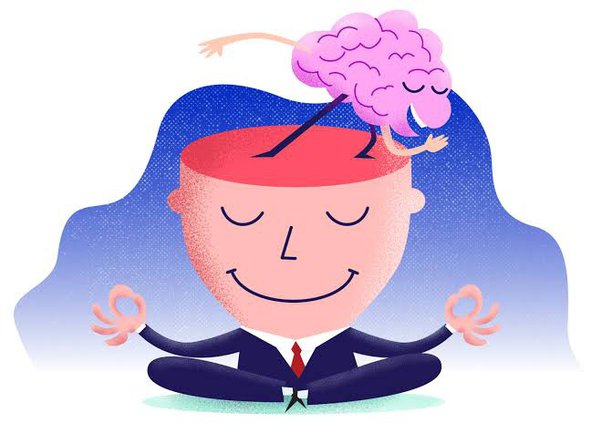Building a daily meditation practice can have numerous benefits for your mental health. Here are some tips to help you establish and maintain a successful meditation routine:
Start Small: Instead of committing to a lengthy daily session, begin with a modest goal.
For example start with five minutes of guided meditation three times a week for beginners, gradually increasing the duration as meditation becomes a consistent part of your routine.
Find the Right Time: Experiment with different times to meditate and discover what fits best into your schedule.
Try a Meditation App or Podcast: If unsure how to begin, turn to meditation apps, many of which offer free guided sessions.
Apps like Calm, Headspace, and Ten Percent Happier can introduce you to various meditation techniques, breathing exercises, and calming sounds.
Keep at It: Developing a new habit takes time, so be patient if meditation doesn’t immediately resonate with you.
Use challenges as opportunities for self-reflection and adjust your approach accordingly. Consistency is key to making meditation a seamless part of your daily routine.
Know When It’s Not Working: Immediate benefits may not be apparent, and occasional wandering thoughts are normal.
However, if meditation consistently worsens your mental state, seek guidance from a therapist to evaluate its suitability for you.
Get Started: To kickstart your meditation journey, find a comfortable spot, set a timer for three to five minutes, and focus on your breath.
Acknowledge wandering thoughts, let them go, and return your focus to your breathing. Over time, you’ll likely become more mindful of your experiences and surroundings.
Experiment with Different Techniques: There are various meditation techniques such as mindfulness, loving-kindness (metta), transcendental meditation, and more.
Experiment with different methods to find what resonates with you.
Focus on Your Breath: A common meditation technique is to focus on your breath. Pay attention to the sensation of your breath as you inhale and exhale. This helps anchor your mind to the present moment.
Be Patient and Gentle with Yourself: Understand that meditation is a skill that develops over time. Don’t be too hard on yourself if your mind wanders. Gently guide your attention back to your chosen point of focus.
Set Realistic Expectations: Meditation is not about achieving a completely empty mind. It’s normal for thoughts to arise. The goal is to observe them without attachment and let them pass.
Journal Your Experience: Keep a meditation journal to track your progress and experiences. Write down how you feel before and after each session. This can help you stay motivated and identify patterns over time.
Incorporate Mindfulness into Daily Activities: Extend mindfulness beyond your meditation sessions. Practice being present in everyday activities, such as eating, walking, or doing chores. This can enhance your overall mindfulness and well-being.
Join a Meditation Group: Consider joining a local meditation group or an online community. Sharing your experiences with others can provide support, encouragement, and a sense of community.
Whether it’s in the morning, before bed, during a commute, or a work break, choose a time that aligns with your lifestyle and stick to it for consistency.
Get Comfortable: Contrary to the classic lotus position, comfort is more important than appearance. Choose a position that feels natural and easy, whether sitting, lying down, walking, or standing.
Creating a comfortable meditation space or incorporating a ritual can enhance the experience.
Remember, there’s no one-size-fits-all approach to meditation. Success lies in finding a method that resonates with you.
As you begin to notice increased compassion, peace, joy, and acceptance in your life, you’ll know that your meditation practice is working. Patience, curiosity, and an open mind will keep you on the path to success.

